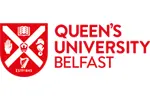We're moving! This site will be relocating to goingto.university in 2026. Please update your bookmarks to the new address.


| The award | How you will study | Study duration | Course start | Domestic course fees | International course fees |
|---|---|---|---|---|---|
| PhD | Full-time | 3 years | - | - | GBP 22700 per year |
The School of Biological Sciences provides PhD and MPhil (research degree) programmes in subjects ranging from basic biochemistry, molecular genetics and cancer research, to agricultural science, marine ecology and the economic evaluation of ecosystem services and food retailing. If you have a topic or research question in mind, please use the Find a Supervisor link (see Apply tab) to identify the most appropriate member of staff to support your idea. If not, don't worry, we regularly advertise funded projects and there is no harm in browsing our academic staff profiles for inspiration and then contacting whoever seems best: we are very open to applications from suitably qualified people interested in scientific research. In every case, a PhD or MPhil course provides the means of being part of a cutting edge scientific research team and contributing to genuine new discoveries or the development of new methods for practical use. If you cannot study full time, we offer pro-rata part time research degree programmes as well. To help orientation, the School is organised into three research theme clusters: - Ecosystem Biology and Sustainability - Microbes and Pathogen Biology - Food Safety and Nutrition Ecosystem Biology and Sustainability: In this cluster, you could research biodiversity and ecosystem services for environments ranging from tropical forests to deep oceans, using field techniques and skills such as wildlife tracking, taxonomy, geostatistics, molecular and genetic ecology, foodweb-analysis, microcosm and mesocosm experiments and mathematical/computational methods. Alternatively, you could study the behaviour and temperament of wild, agricultural or domestic animals and their implications for welfare and ability to respond to environmental change. Potential research projects include phylogenetic analysis of rare and newly discovered species, examination of ecological interactions in tropical systems, agricultural soils, or marine communities, using state-of-the-art genetic analysis, surveys using drones or satellite tagging, or experiments in tanks and field plots, including careful and ethical examinations of animal behaviour. Projects range from theoretical analysis of stability in ecosystems, through discovery of new species and mechanisms of interaction, or responses to climate change, to the assessment of EU agri-environment schemes, development of new methods for commercial fisheries management and economic evaluations of conservation measures. Projects very often have an international dimension and include collaboration with other researchers worldwide. Microbes and Pathogen Biology: This cluster covers a diverse array of research interests united by an emphasis on molecular approaches applied to both fundamental and applied questions over the range from molecular to ecological systems. These interests include biochemistry, food safety, microbiology and parasite control with applications in human and animal health, nutrition, plant and soil sciences, and agricultural development. We have a long-standing reputation in parasite biology and in applied microbiology (for example in clearing land of contamination) as well as strong contributions to fundamental methods in understanding cancer, developing veterinary vaccines and molecular detectors for toxins and diseases. The common thread is our strong molecular approach using and developing cutting edge genomic, transcriptomic/proteomic methods. Research students in this cluster enjoy a range of strong international links across Europe, Asia, North and South America. Food Safety and Nutrition: Research opportunities offered by this cluster span the entire food chain "from farm to fork" with a strong emphasis on food safety and nutrition, public health and food security. In this cluster you would conduct research under the supervision of leading scientists based in the Institute for Global Food Security and benefit from integration with business experts, helping you gain leadership positions nationally and internationally.
Below are some suggested courses at other providers that you may also be interested in:
Master of Information and Communications Technology (Advanced) Master Degree
Western Sydney University
Find out moreWater Sustainability: Integrating Technology- and Nature-based Solutions (Think Water) Advanced Master
University of Antwerp
Find out moreIf you do not meet the entry requirements for this course then consider one of these postgraduate preparation courses from another institution:
Graduate Diploma of Engineering (Industrial Automation)
Engineering Institute of Technology
Find out moreGraduate Diploma in Strategic Management Level 7
New Zealand Management Academies (NZMA)
Find out moreThere are 462 other courses listed from Queen's University Belfast. A selection of these are displayed below:
Join the StudyLink email list and never miss a chance to turn your study abroad dreams into reality!

See other universities in Belfast
Find out more about studying in the United Kingdom